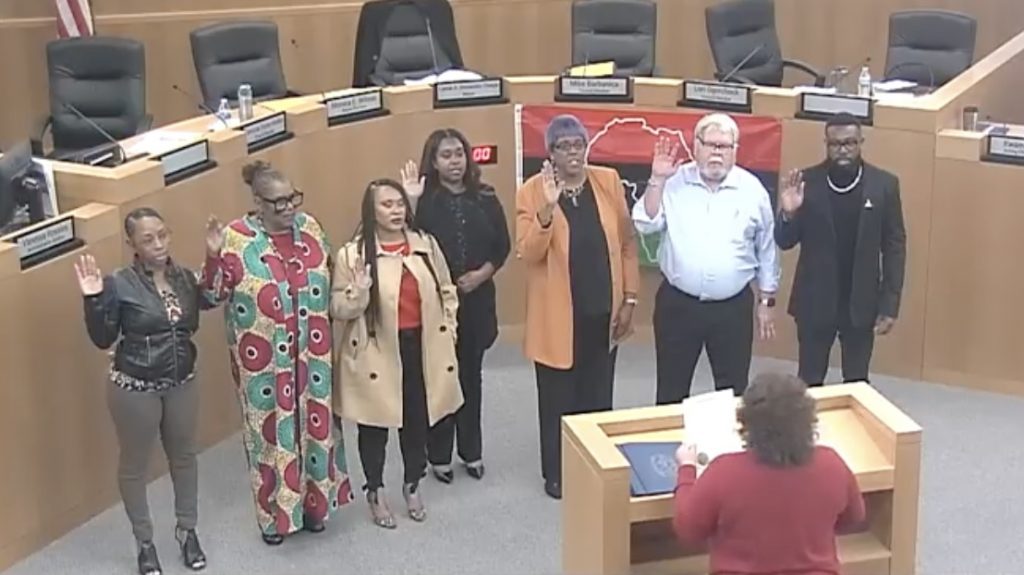Almost two years after creating an independent oversight commission to advise on police policies and strengthen community trust, the City Council has appointed seven residents to do just that.
The commission is part of several police reforms Mayor Lamar-Hernandez Thorpe introduced in February 2021. But, at the time the council voted to appoint the council as an interim independent oversight committee, with a goal of possibly forming a civilian commission later on.
At the urging of residents, approval for a civilian board came a year later, shortly after the FBI and the Contra Costa County District Attorney’s Office announced its investigation into the department.
“Everybody here advocated for this, and we pushed it when other people refused to act, were paralyzed to act and didn’t want to act,” Mayor Pro-Tem Tamisha Torres-Walker said. “We acted, this council.”
Torres-Walker, who herself has served on such a commission in another city, reiterated that the community “has been devastated by what we have seen in policing.”
“There has not been any oversight,” she said. “There has not been any accountability. And that hasn’t happened at the level of the council or a city manager. We have made history tonight (with appointing a civilian commission), but history means nothing if we don’t make progress and my belief is we will make progress.”
Many other Bay Area cities have also formed similar police commissions, including Oakland, which fired its police chief in 2020, and San Francisco, which set a policy on how police can stop and search suspects. But because Antioch is a general law city, the city’s commission will not have the same type of power that those charter cities have.
The purpose of the Antioch commission is “to strengthen trust, transparency, accountability, and police-community relations in the city of Antioch by ensuring that the Antioch Police Department’s policies, practices, and customs meet or exceed national standards of constitutional policing,” according to the staff report.
The commission could advise the council, city manager and chief of police on policy matters concerning public safety, encourage open communication between the police and residents, as well as community participation and oversight by reviewing and recommending policies, procedures and programs designed for effective, responsive community policing that is sensitive to the diverse needs of the city’s residents.
Thorpe-Hernandez said a city ordinance created guidelines for selection of the seven commission members, who would come from each of the city’s four districts, as well as three at-large representatives, one from the faith-based community, the school district and business sector. Each council member as well as youths under 18 were involved in interviewing candidates and narrowing down the list, he said.
Related Articles
Ex-Antioch cop, charged with violent civil rights violations, ‘confined to a wheelchair’ with serious injuries
Judge tosses special circumstances in Antioch gang murder case impugned by police racism
‘He’s reaching’: New video shows four Antioch cops shoot allegedly armed man as he runs
Retired city manager plans to run for Antioch mayor
Antioch to hire security for downtown city properties
However, no one from the Antioch Unified School District or business community applied, he said.
“I would really love to see someone from our school community participate, and a business leader,” he said of future commissions.
One-year term nominees who were approved Tuesday include Devin Williams and Alicia Dianne Lacey-Oha. Two-year term commissioners will be Porsche Taylor and Leslie May, while three-year terms went to Mahogany Spears, Treva Hadden and Harry Thurston.
Before swearing in the new commissioners – which was repeated at a second ceremony Wednesday – the mayor reiterated that the council sets the policies while the city manager holds the police accountable and provides oversight, something he said hasn’t been done in the past.
“And so tonight represents this government taking hold of its city and its instruments and making sure that every department in the city represents the values of our community. We’re not going back.”


